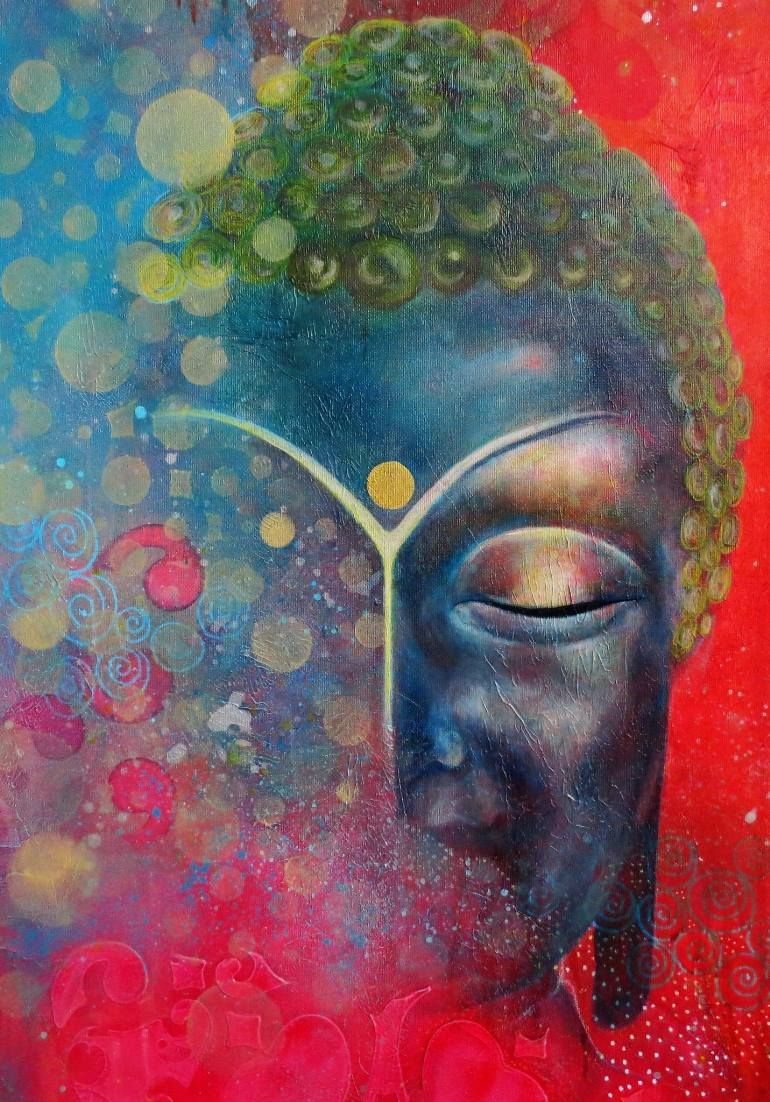Be Like Adam’s Son

by Jawdat Sa’eed
Be Like Adam’s Son
Foreword
Praise be to God; may peace be upon His chosen prophets, and upon those who call to justice and mercy.
I take up here an approach to the main dilemma of human life on this planet; I tackle this issue in the light of the story of Adam's two sons, as related by God in His Scripture, the Qur'an (5:27-31). In that parable, we have two distinct methods of dealing with life's problems, since one of Adam's sons tried to get over the problem by killing the other, like a doctor trying to get over the disease by killing the patient; and the other held back his hand, and affirmed that killing could not be the right solution.
I may mention here that it is fortunate that I propound my idea at this juncture in time, when mankind happens to be primed for comprehending the method of Adam's son. Humankind has almost understood, through lots and lots of suicidal trials, that violence is just not the way. For my part, I have devoted all my humble effort to bringing this fact to the notice of humankind. I have no doubt that later studies will greatly overshadow my effort. My only accomplishment would be then that I have shaken the sleepers to open their eyes and see things from a vantage point that they had never suspected to exist.
So let us start with this point. One big hurdle that prevents Arabs and Muslims from probing their dilemmas is Israel. But they seem to forget in this respect that our real problem is not Israel, nor the imperial powers. A more basic problem that lurks behind our tragic conditions is that we suffer from certain mental drawbacks for which neither Israel, nor any imperial power, are responsible. Long ago the Qur'an warned us to look for our troubles in the right place: " Say: 'It is from yourselves.'" (3:165) If any still have doubts that our basic ills lie within our souls, let them remember the Second Gulf War, when we forgot about Israel, and were sure that more important than Israel were the disputes among us – we even summoned those same imperial powers to help us defeat our domestic 'enemy.'
Just make peace among yourselves, with each other, and you will see, Arabs and Muslims, how the world will respect you, will try to win your favor; and you will see how America will turn its back on Israel; because America has always changed sides when it proved more profitable to do so.
The point here is that no one can subjugate us unless we agree to be subjugated. But if we still refuse to learn, then more catastrophes and more scourge will force us one day to learn, though after we have paid for our failure to open our ears and eyes earlier. We shall have to learn, if not through learning from history, then from more pain and catastrophes. The Qur'an is replete with exhortation to look and listen and think, as in this verse, "And how many signs in the heavens and earth do they pass by? Yet they turn their faces away from them." (12:105)
Can we for instance envision a future situation in which we have really established peace among ourselves, peace whereby no one will have to jeopardize anything, neither territory, nor position? Can our intellectuals perceive that? It will be clear then that what we need is not the great hero that comes forth and forces us by might into a unified body. For as long as we keep waiting for the one man to come and draw us out of the abyss we shall never find our way.
But I am sure that the light of day is coming, because of what God has promised, "Their intention is to extinguish Allah's Light by blowing with their mouths; but Allah will complete the revelation of His Light," (61:8) and on the basis of what I have seen and heard in this world.
Beer Ajam (a village southwest of Syria), 6/11/1996
INTRODUCTORY, THE LANGUAGE OF WORDS AND THE LANGUAGE OF CONCEPTS
Let us start our discussion with the following short tradition of the Prophet's (peace be upon him): "Follow the example of Adam's son" (an authentic tradition, reported by al-Tirmidhi, and also, in slightly different wording, by Abu Dawood.)
Is not this a tradition of the Prophet's? If so, why have Muslims generally not cared for it? Or even flouted and derided the concept in it? I still remember when, as I was once elaborating on this, one among the audience said: "Nay! I will never buy this! If I am to enter Paradise, I want to enter it with my sword brandished high in my hands; never with my head bent down with submission and surrender."
Often have we seen a Muslim scholar devote a whole book to the explication of one tradition of the Prophet's (peace be upon him), so why have all the scholars totally ignored the above tradition?
To go one further step; let us inquire what renders a certain text idle and inoperative? It is worth our while to inquire how the Qur'an and the sunnah (the Prophet's traditions) have fared across the ages, how certain portions are ignored and others attended to. A whole science should be dedicated to the study of the processes through which texts come to be brought into life or thrown into oblivion. I know some light has been thrown on this, but it is not yet developed into a science, which we do need.
We do notice how humans' minds go through changes, as a result of which they are most inattentive to things that used to be of primary importance; and how often this happens to us, and in connection with our most precious texts! That is why I yearn to see people investigate why for instance we ignore certain parts of the Qur'an and the Prophet's traditions. (I did raise such inquiry in my Foreword to the book No, Jury, God Before King!)
The Messenger was once mentioning a certain future event, when he commented: "This will take place when men have deserted knowledge." One companion, Ziad bin Labid, objected: "How can this be, Messenger of Allah, when we learn the Qur'an and will have our children recite it, and they will have their children recite it, and so on until the Day of Judgment?" "Oh, Ziad! I used to take you to think better than most in Medina! Do you not see how the Jews and the Christians still hold the Bible, yet it does them no good at all?" (A fairly authentic tradition, reported by al-Tirmidhi and Ibn Majah.)
We may say in light of the above tradition that we have the language of letters and words, and the language of concepts and ideas. In the above parable of Adam's two sons, the aggressor could not grasp certain notions – his concepts were not mature enough to handle the situation as a human being should do. And when the Prophet spoke to the Quraish tribe in Makkah (Mecca) they failed to comprehend, though he used the same medium they used – they all shared the same Arabic language; but the dispute was over a certain rigid worldview of theirs which they refused to reconsider.
I do realize that the modern age is beginning to see more into such matters. The problems connected with this have been with humankind since humans walked on this planet, but analyzing them is quite recent. The average Muslim is happy that he/she was born in a certain culture, for he/she says: "Thank God I was born in a Muslim culture; for if I were born elsewhere, I would be a follower of a different religion." He is virtually saying here: "If I had been born in a different part of the world, I would have followed that culture's religion, would have taken over their worldview, their ideas about salvation, about sacred texts, and about whence we came and where we go. I would have taken other men for models of perfection, and as my reference for right conduct."
How hard it is to make a fresh start and to change direction can be ascertained from exploring precedents in history. But we may begin to open our eyes by reflecting on how the Muslim has come to a state when many texts, those of the Qur'an and sunnah (the Prophet's traditions), fall on deaf ears.
Muslims are especially wary of social sciences – they are worried that such sciences would unearth facts about humankind which contravene the Qur'an or the sunnah, for Muslims would not say then that what proved to be false was their own comprehension of the Qur’an and sunnah, but the Qur'an and sunnah themselves. It is hard for them to admit that their minds can have borne illusions that blur comprehension. The cocoon in which they hide all that they take to be sacred is believed to be inherent in texts; and that is why men have often preferred to die in defense of concepts which they sanctify, for they take them to come from God. If the Prophet's companion failed in the above tradition to comprehend how knowledge may deplete, then how can we be sure that we have not fallen into the same pit in which the Jews and Christians fell? And by the way we are again wrong when we do not delve into the Bible and see in it the light that the Qur'an has asserted it has: " It was We Who revealed the Law to Moses: therein was guidance and light. … therefore fear not men, but fear Me, and do not sell My Signs for a miserable price." (5:44) Instead, we quite simply say: "They have gone astray because their Scriptures have been distorted while we will never go astray as our Scripture will never be distorted, for it has been preserved by God Himself.”
One thing one may conclude is that texts may often not help in leading people out of their dilemmas; we may be in need of another paradigm that helps us benefit from the light of the Qur’an; we really need to reflect on that which the Messenger was concerned about, and foresaw that the Muslims would encounter in the same way as other nations had encountered.
Adam’s son and the Quibbling Factions
Over the ages we have seen how the Muslim factions, like the followers of other religions, have clashed with each other and killed each other in the name of their understanding of religion. But we have a good model in Adam’s son – for he announced his refusal to be a party in this vicious circle of killing and counter-killing. And when the Messenger, peace be upon him, told two of his companions, on two separate occasions, to keep aloof when people went into partisan fighting, was he demanding something that clashed with normal human nature?
It is still a far cry to urge a Muslim adopt the way of Adam’s son, for men still say that such stance goes contrary to humankind's instinct and inborn nature. And I fully realize that to overcome this concept it is not enough to cite verses of the Qur’an or traditions of the Prophet. But I do urge the Muslim to think of the following fact about the Qur’an: God does not mention the ruling concerning inheritance more than once or twice, but He mentions the facts of history scores of times. How often the Qur'an represents scenes from the lives of previous nations and peoples, what brought perdition to nations, what was the outcome of people's turning a blind ear to the facts of history, or denying that they could find in history any useful lessons!
It will be a definite step forward when we take the events of history as our concrete evidence that the Qur'an is a book of truth. On the other hand we shall never be able to go forward as long as we take an arrogant stance towards history, and believe that we are somehow above its rules. When a people believe that they are exempted from the verdicts of history they will no longer give heed to its lessons. It was Satan who first boasted that what applied to others did not apply to him. Once you take your race, your nation, your tribe, or your creed not to be subject to the same laws as apply to others, that you have some special relationship with God or that you are of His own family, regardless of how you behave, then you will have chosen Satan's way.
This disease of arrogance and pride is something that makes one condemned to exclusion from entering Paradise, for the Prophet, peace be upon him, says, “No human will enter Paradise in whose heart there is the least grain of pride.” (Related by Muslim) It is for this flaw of haughtiness that Satan was ejected from heaven, as the Qur'an reports, (15:34-35).
On the other hand Adam’s son chose not to rise above the others; by holding his hand from assaulting the other, he announced his rejection of any kind of arrogance.




